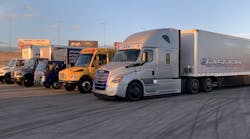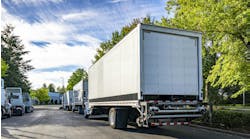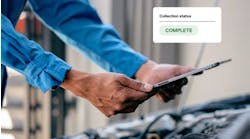Two original equipment manufacturers each made recent announcements further illustrating just how quickly the development of Class 8 electric trucks is taking place.
Daimler Trucks North America (DTNA) said it has built the first two Class 8 battery electric Freightliner eCascadias for customers at its research and development center in Portland, OR.
“This milestone in electric is important as both today and tomorrow’s technology is progressing,” said Roger Nielsen, president and CEO of DTNA.
The trucks are the first heavy-duty additions to Freightliner’s growing electric innovation Fleet. They are built on the foundation of the diesel-powered Freightliner Cascadia.
Penske Truck Leasing and NFI will be the first companies to use the eCascadia in commercial operations. They will be used in operations in Southern California. Penske ranks No. 4 and NFI is No. 38 on the 2019 Fleet Owner 500 rankings of the largest for-hire carriers.
The Freightliner Innovation Fleet is supported by a partnership between DTNA and the South Coast Air Quality Management District.
“This is an exciting time for the future of zero-emissions trucks, said Wayne Nastri, South Coast AQMD’s executive officer. “As we work towards meeting air quality standards, it is imperative that truck manufacturers accelerate the commercialization of these technologies that will help clean our air and protect public health.”
Separately, Nikola Motor Co. announced it received a $1.7 million grant from the U.S. Department of Energy to advance its research into fuel cell membrane electrode assembly (MEA).
Jesse Schneider, Nikola’s executive vice president of hydrogen & fuel cell technologies, said the grant will help "accelerate a breakthrough that will benefit the entire hydrogen and fuel cell industry and community."
Nikola said it is partnering with several university professors to develop a MEA architecture to satisfy the high-power output and durability requirements of heavy-duty applications.
The company said it has more than 14,000 Class 8 trucks on order. It will begin testing on Arizona roads later this year and is planning full production in late 2022.
Nikola also said its hydrogen station partner, NEL Hydrogen of Norway, received a $2 million award from the DOE.



